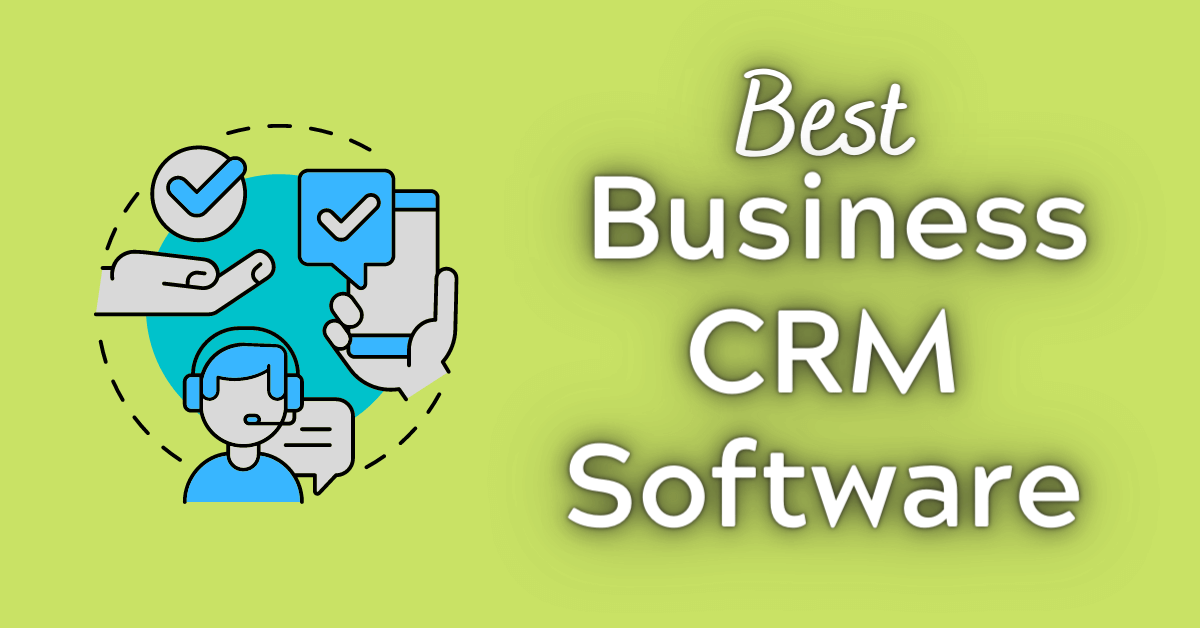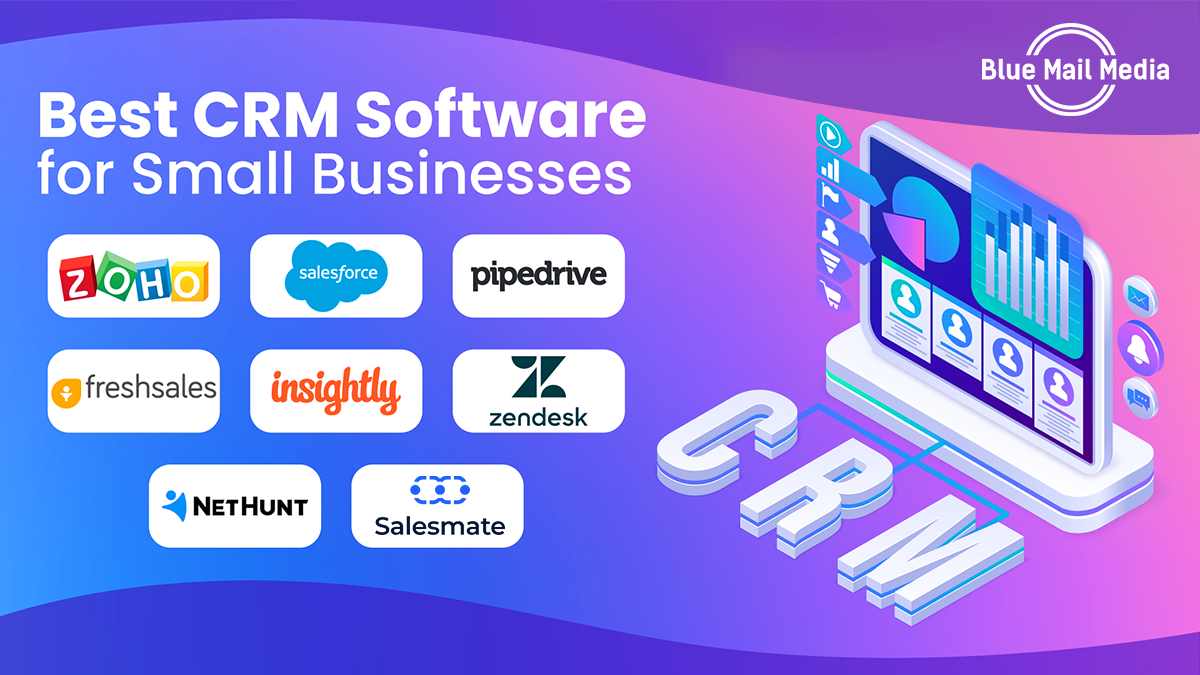Welcome to the realm of customer relationship management (CRM) systems, where businesses forge enduring bonds with their valued clientele. In this comprehensive guide, we delve into the intricacies of selecting and implementing the best business CRM, empowering you to elevate your customer interactions, streamline operations, and propel sales performance to unprecedented heights.
As we navigate the evolving landscape of CRM technology, we will explore the latest trends and advancements shaping the future of customer engagement. Get ready to unlock the secrets of effective CRM implementation and witness the transformative impact it can have on your business.
Definition of Business CRM
In a business context, a customer relationship management (CRM) system is a software tool that helps businesses manage and track their interactions with customers. CRMs provide a centralized platform for storing customer data, such as contact information, purchase history, and communication history.
This data can be used to improve customer service, sales, and marketing efforts.
For example, a business might use a CRM to track the following information about its customers:
- Contact information (name, address, phone number, email address)
- Purchase history (what products or services they have purchased, when they purchased them, and how much they spent)
- Communication history (what communications they have had with the business, such as phone calls, emails, or social media interactions)
This information can be used to improve customer service by providing agents with a complete view of the customer’s history with the business. This can help agents resolve customer issues more quickly and efficiently. CRMs can also be used to improve sales and marketing efforts by providing businesses with insights into customer behavior.
This information can be used to create more targeted and effective marketing campaigns.
Benefits of Using a Business CRM

Implementing a CRM system offers a plethora of advantages for businesses, empowering them to enhance customer satisfaction, streamline operations, and bolster sales performance.
Improved Customer Satisfaction
CRMs serve as a centralized hub for customer data, providing a comprehensive view of interactions across various channels. This enables businesses to:
- Personalize customer experiences by understanding their preferences and past interactions.
- Respond promptly to inquiries and resolve issues efficiently, enhancing customer loyalty.
- Track customer feedback and identify areas for improvement, fostering continuous customer satisfaction.
Streamlined Operations, Best business crm
CRMs automate many business processes, freeing up time and resources for more strategic initiatives. Key benefits include:
- Automated lead generation and qualification, reducing manual effort and improving lead quality.
- Streamlined sales pipelines, enabling sales teams to track progress and identify bottlenecks.
- Enhanced collaboration between departments, fostering seamless communication and data sharing.
Improved Sales Performance
CRMs provide valuable insights into sales performance, helping businesses optimize their strategies and increase revenue. Benefits include:
- Detailed analytics on sales pipelines, conversion rates, and customer lifetime value.
- Personalized recommendations for cross-selling and up-selling opportunities.
- Automated reminders and notifications to ensure timely follow-ups and lead nurturing.
Features of a Best-in-Class Business CRM
A best-in-class business CRM is one that offers a comprehensive suite of features and functionalities to help businesses manage their customer relationships more effectively. These features include:
Customer Management
- Contact management: The ability to store and track customer contact information, such as name, address, phone number, and email address.
- Lead management: The ability to track and manage leads throughout the sales pipeline.
- Account management: The ability to track and manage customer accounts, including their purchase history, support history, and other relevant information.
- Opportunity management: The ability to track and manage sales opportunities, including their stage, value, and expected close date.
Selecting the Right Business CRM
Selecting the right business CRM is crucial for optimizing sales and customer relationships. To make an informed decision, businesses should consider the following factors:
Business size and industry
The size and industry of the business determine the complexity and functionality required in a CRM system.
Business goals
Clearly define the specific goals the CRM should help achieve, such as increasing sales, improving customer service, or streamlining marketing campaigns.
Budget
Determine the financial resources available for CRM implementation and ongoing maintenance.
Integration requirements
Consider the need to integrate the CRM with other business systems, such as ERP or marketing automation software.
User adoption
Assess the willingness and ability of employees to adopt and use the CRM effectively.
Implementation and Best Practices: Best Business Crm
Effective implementation and utilization of a business CRM are crucial for maximizing its benefits. This section delves into best practices for successful CRM implementation, covering data management, user adoption, and ongoing maintenance.
Data management is the foundation of a robust CRM system. It involves capturing, organizing, and analyzing customer data to gain valuable insights. Best practices include defining clear data ownership and governance policies, ensuring data accuracy and consistency, and implementing data security measures to protect sensitive information.
User Adoption
User adoption is vital for CRM success. It requires creating a culture of CRM usage within the organization and providing proper training and support to end-users. Best practices include involving users in the implementation process, customizing the CRM to fit their needs, and offering ongoing training and support to ensure effective utilization.
Ongoing Maintenance
Ongoing maintenance is essential to keep the CRM system up-to-date and aligned with evolving business needs. Best practices include regular software updates, system monitoring, and performance optimization. Additionally, periodic reviews and evaluations can identify areas for improvement and ensure the CRM continues to meet the organization’s changing requirements.
Integration with Other Business Systems
Integrating CRM systems with other business applications is crucial for businesses seeking to enhance their operational efficiency and achieve seamless data flow. By connecting CRM with other systems, organizations can streamline processes, improve data sharing, and gain a comprehensive view of their customer interactions and business operations.
Examples of CRM integration include:
Integration with Marketing Automation Systems
- Automates lead generation and qualification processes.
- Provides targeted marketing campaigns based on customer data from CRM.
- Tracks customer engagement across multiple channels.
Integration with E-commerce Platforms
- Synchronizes customer order and purchase history between CRM and e-commerce systems.
- Enables personalized product recommendations based on past purchases.
- Provides real-time inventory updates for sales teams.
Integration with Accounting and ERP Systems
- Automates invoice generation and payment processing.
- Provides a consolidated view of customer financial transactions.
- Improves financial reporting and analysis.
Emerging Trends in Business CRM

The business CRM landscape is constantly evolving, with new technologies and trends emerging to enhance customer relationship management capabilities. These advancements are shaping the future of CRM, enabling businesses to connect with customers in more personalized, efficient, and data-driven ways.
One significant trend is the rise of artificial intelligence (AI) and machine learning (ML) in CRM systems. AI-powered CRM solutions can automate tasks, analyze customer data, and provide personalized recommendations, allowing businesses to optimize their customer interactions and deliver exceptional experiences.
Integration with Social Media
Social media has become an integral part of customer communication, and CRM systems are integrating with social media platforms to provide a comprehensive view of customer interactions. This integration enables businesses to monitor customer sentiment, respond to inquiries, and engage with customers on their preferred channels.
Cloud-Based CRM
Cloud-based CRM systems are gaining popularity due to their flexibility, scalability, and cost-effectiveness. Cloud-based solutions allow businesses to access their CRM data from anywhere with an internet connection, making it easier for remote teams and mobile workforces to collaborate and manage customer relationships.
Mobile CRM
The proliferation of smartphones and tablets has led to the emergence of mobile CRM applications. These apps provide sales and customer service teams with real-time access to customer data, enabling them to manage customer interactions on the go and close deals faster.
Data Analytics and Reporting
CRM systems are becoming increasingly data-driven, with advanced analytics and reporting capabilities that provide businesses with valuable insights into customer behavior, preferences, and trends. This data can be used to identify opportunities for improvement, optimize marketing campaigns, and enhance the overall customer experience.
Self-Service Portals
Self-service portals empower customers to access their account information, track orders, and resolve issues independently. This reduces the workload on customer service teams and provides customers with a convenient and efficient way to manage their interactions with businesses.
Gamification
Gamification techniques are being incorporated into CRM systems to motivate sales teams and improve performance. Gamified CRM solutions reward users for achieving goals, completing tasks, and exceeding targets, fostering a sense of competition and driving productivity.
Predictive Analytics
Predictive analytics uses historical data and machine learning algorithms to identify patterns and predict future customer behavior. This information can be used to personalize marketing campaigns, offer proactive support, and improve customer retention rates.
Final Review

In conclusion, choosing and implementing the right business CRM is a strategic investment that can revolutionize your customer relationships. By carefully considering the factors Artikeld in this guide, you can empower your team with the tools they need to provide exceptional customer experiences, drive growth, and achieve long-term success.
As technology continues to advance, the future of CRM holds endless possibilities. Embrace the latest trends, stay informed about emerging best practices, and unlock the full potential of CRM to transform your business into a customer-centric powerhouse.
Commonly Asked Questions
What is the primary function of a business CRM?
A business CRM serves as a centralized platform for managing all customer interactions, from initial contact to ongoing support, providing a comprehensive view of each customer’s journey.
How can a CRM enhance customer satisfaction?
CRMs empower businesses to track customer preferences, purchase history, and support interactions, enabling them to tailor personalized experiences and resolve issues promptly, fostering customer loyalty.
What are the key features to look for in a best-in-class CRM?
Essential features include contact management, sales tracking, marketing automation, customer support tools, and robust reporting capabilities to provide actionable insights.